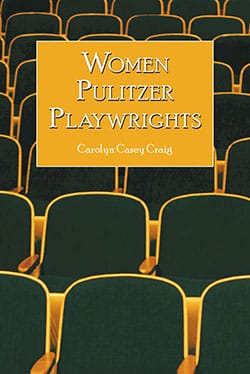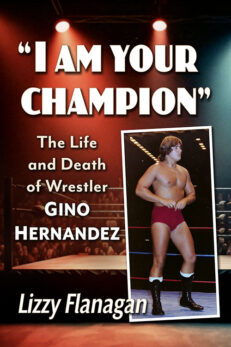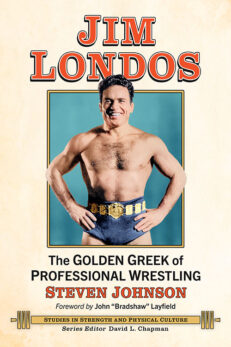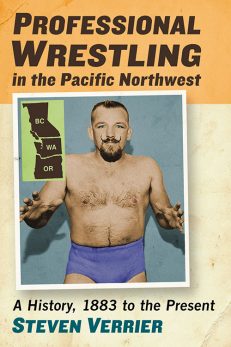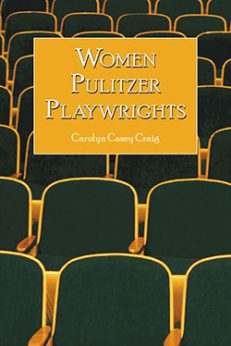Women Pulitzer Playwrights
Biographical Profiles and Analyses of the Plays
$39.95
In stock
About the Book
In the first century of the coveted Pulitzer Prizes, only 11 women have won the prize for drama: Zona Gale (1921), Susan Glaspell (1931), Zoe Akins (1935), Mary Coyle Chase (1945), Ketti Frings (1958), Beth Henley (1981), Marsha Norma (1983), Wendy Wasserstein (1989), Paula Vogel (1998), Margaret Edson (1999), and Suzan-Lori Parks (2002).
This book is about them and their landmark plays, beginning with Gale’s Miss Lulu Bett, which championed the unmarried woman forced to work in the home of a married relative, and closing with Parks’ controversial Topdog/Underdog, which made her the first black woman to win the prize.
Drawn from personal interviews with the playwrights and research from archives and unpublished material, this work shows how the stage art of women has reflected life in the American family and traces a strong thread of feminist history in our culture. Overview chapters set the stage for each playwright and play with sketches of the time period, highlighting the major points of women’s experiences in culture, society and the family. Other chapters analyze each play in detail and discuss the playwright’s life and opinions. The book also includes a quick history of the Pulitzer Prize and a chapter honoring black female playwrights.
About the Author(s)
Bibliographic Details
Carolyn Casey Craig
Format: softcover (6 x 9)
Pages: 347
Bibliographic Info: photos, notes, bibliography, index
Copyright Date: 2004
pISBN: 978-0-7864-1881-7
eISBN: 978-0-7864-2691-1
Imprint: McFarland
Table of Contents
Acknowledgments vi
Introduction. “Take, for Example…”: A Brief Retrospect on Women, Theatre, and Prizes 1
Prologue. Family Ties-A Troublesome Knot? 13
PART I. FAMILY LIES AND THE UNWED WOMAN: GALE, GLASPELL, AND AKINS 17
1. The 1920s: Those Not-So-Good Old Days 18
2. Zona Gale and the Real Village Tale 25
3. Susan Glaspell: From Iowa Village to Greenwich Village 44
4. The Depression Years: Gaining Despite the Losses 61
5. Zoe Akins, Escape Artist 66
PART II. DOMESTIC WARS: CHASE AND FRINGS 83
6. The 1940s: Women in a World at War 84
7. Mary Chase and Her Wartime Rabbit 89
8. The 1950s: An Uncomfortable Homecoming 108
9. Ketti Frings and Her Stageworthy Angel 113
PART III. WHOSE WOMAN IS SHE? HENLEY, NORMAN, AND WASSERSTEIN 127
10. Being Female in the 1950s, ’60s and ’70s 129
11. Beth Henley’s Funny-Terrible World View 140
12. The 1980s: Backlash and Beyond 160
13. Marsha Norman: Getting Out the Truth about Family and Self 166
14. Wendy Wasserstein: Lola’s Well-Rounded Daughter 184
PART IV. LESSONS DRIVEN HOME: VOGEL AND EDSON 207
15. The 1990s: Gender Crisis at the Crossroads (Or, Wrong Turn at the Men’s Movement) 208
16. Paula Vogel’s Winding Road to Victory 213
17. Margaret Edson’s Advanced Course in Wit 232
PART V. HISTORY IN THE STAGING? SUZAN-LORI PARKS AND THE SISTERHOOD OF BLACK PLAYWRIGHTS 249
18. The Early 2000s: “Bang, Bang-You’re American” 251
19. Suzan-Lori Parks: Putting Dirt and Deadly Games Onstage 259
20. “Also in the Winner’s Circle” (The Legacy of Black Women Playwrights) 279
Epilogue: Parting Thoughts on Family Flux and Cultural Flummery 291
Chapter Notes 297
Selected Bibliography 319
Index 331


